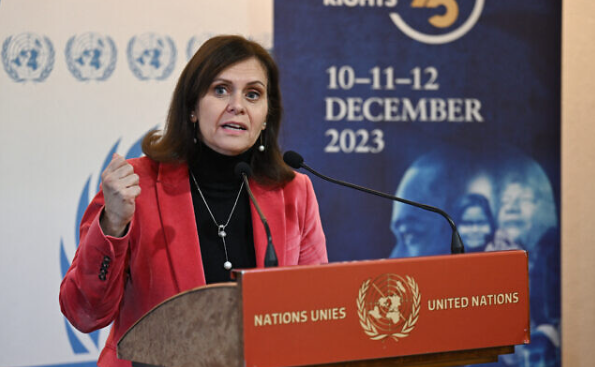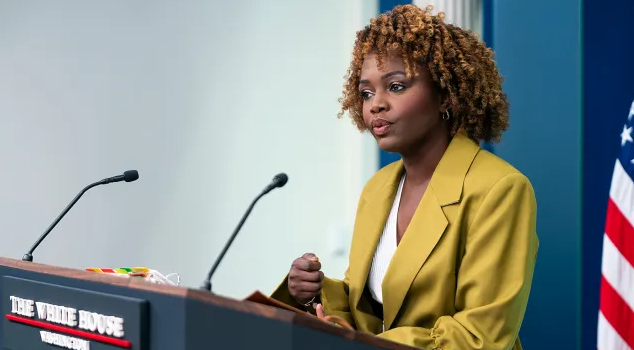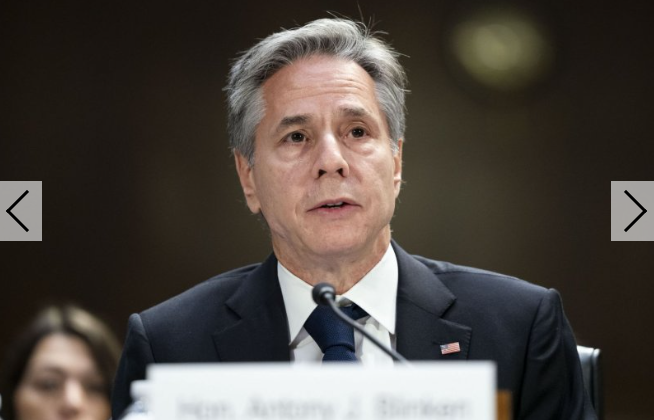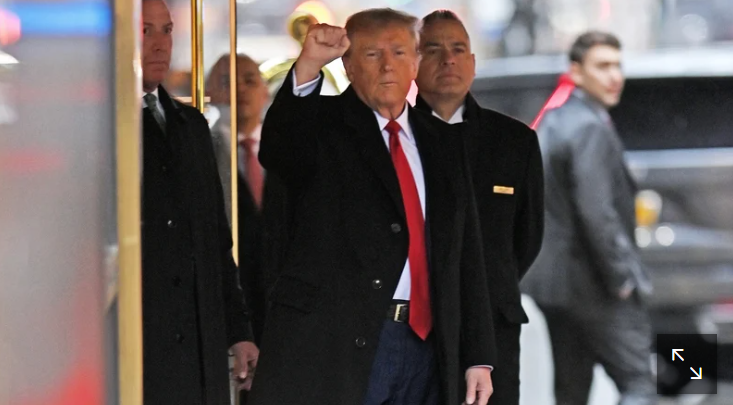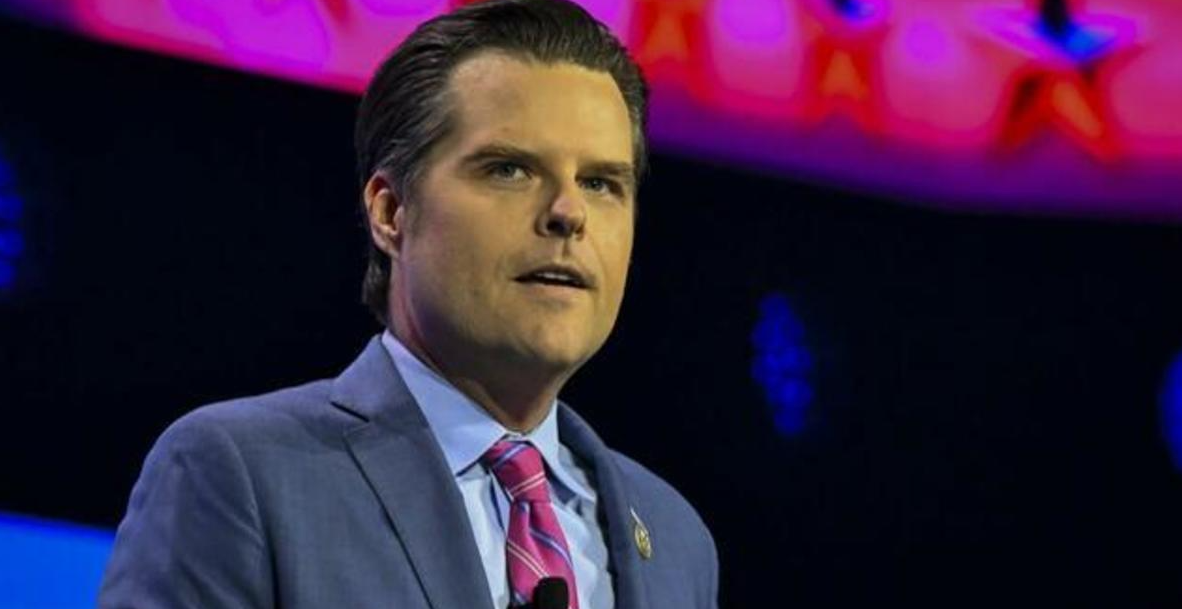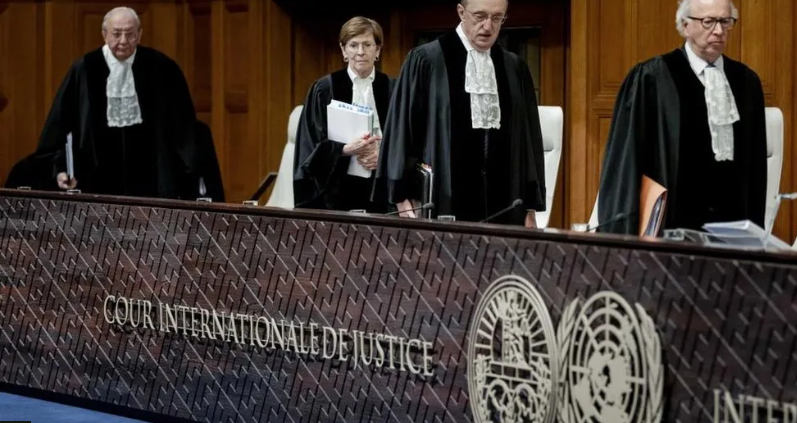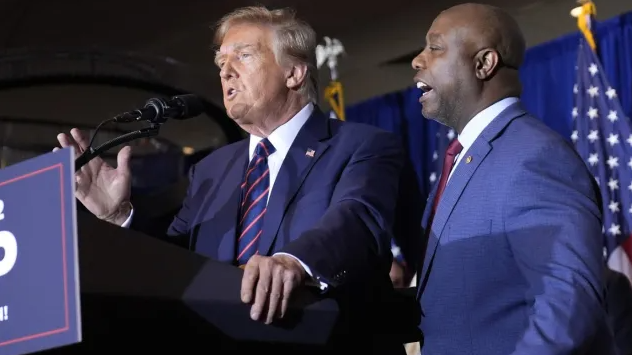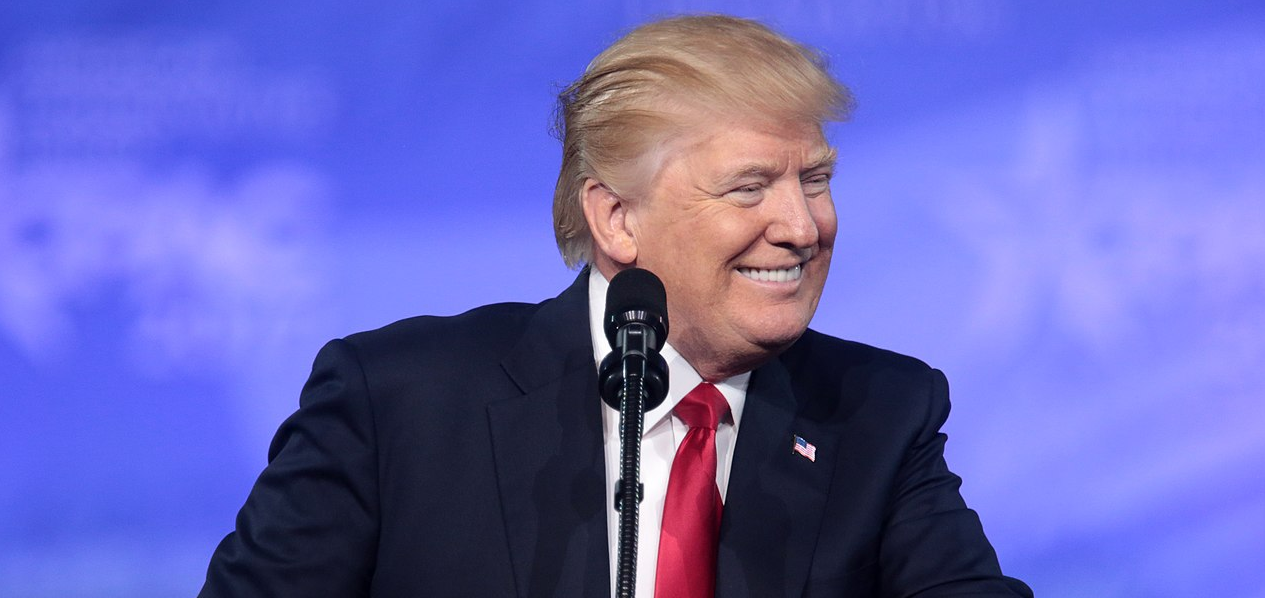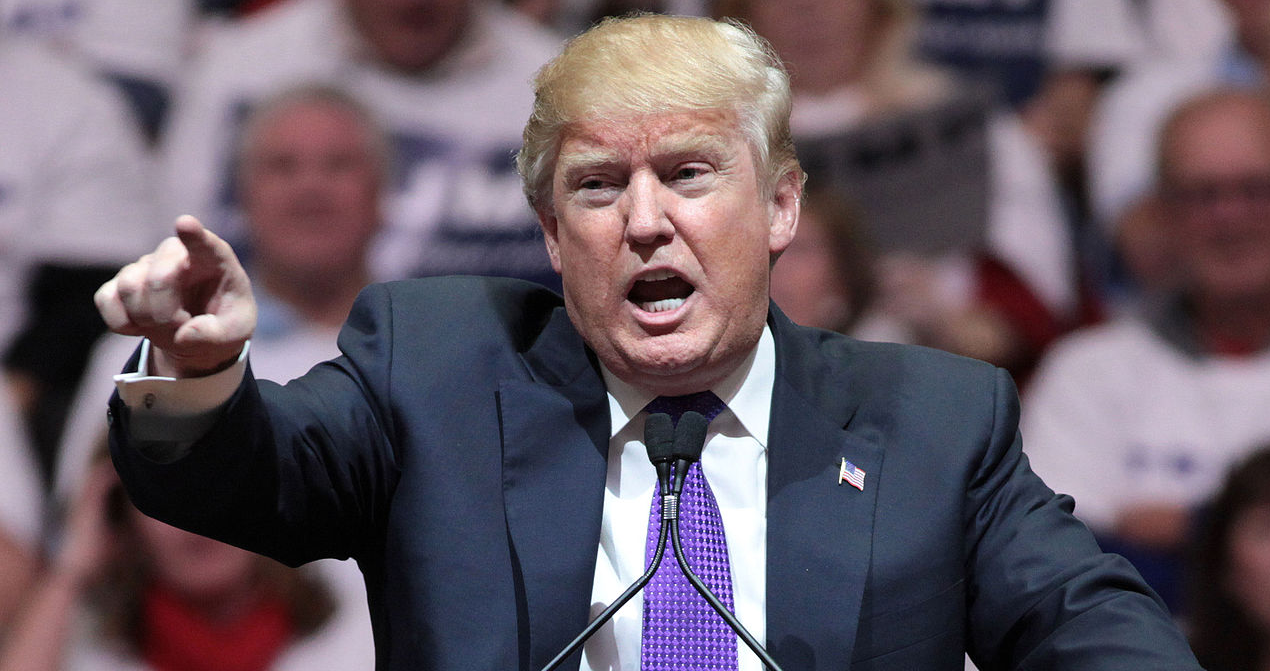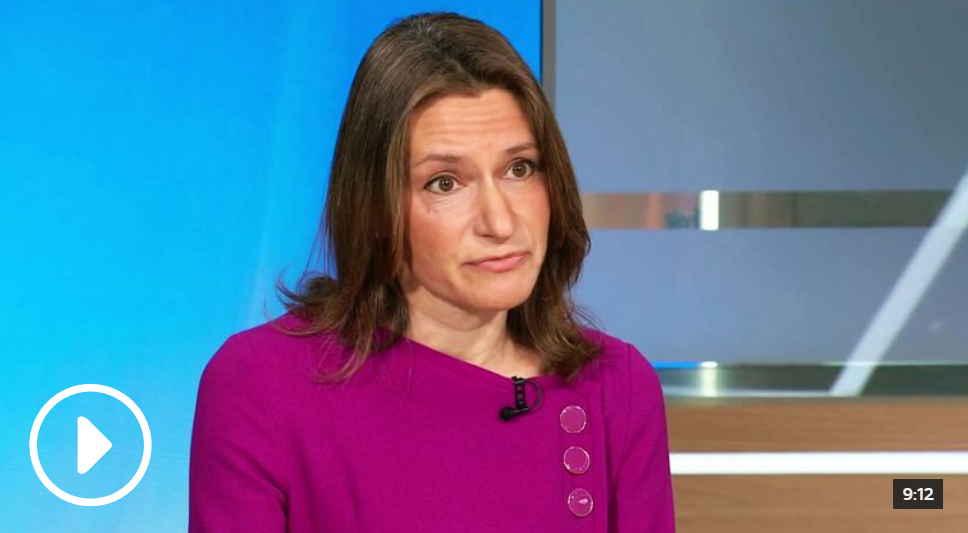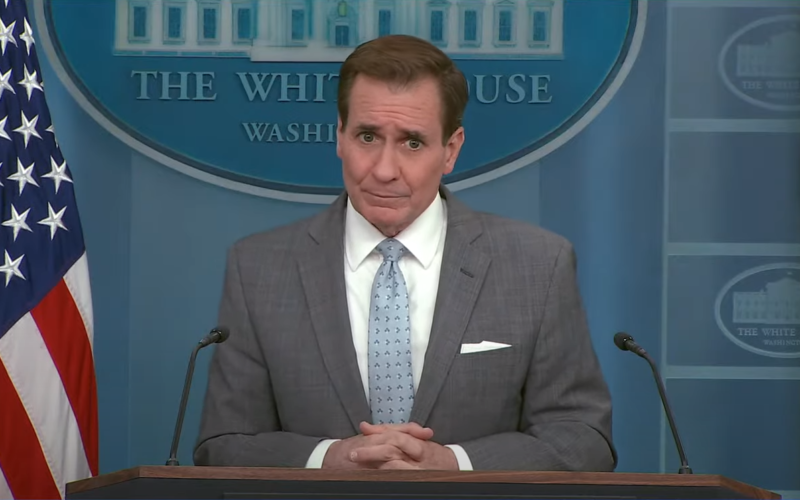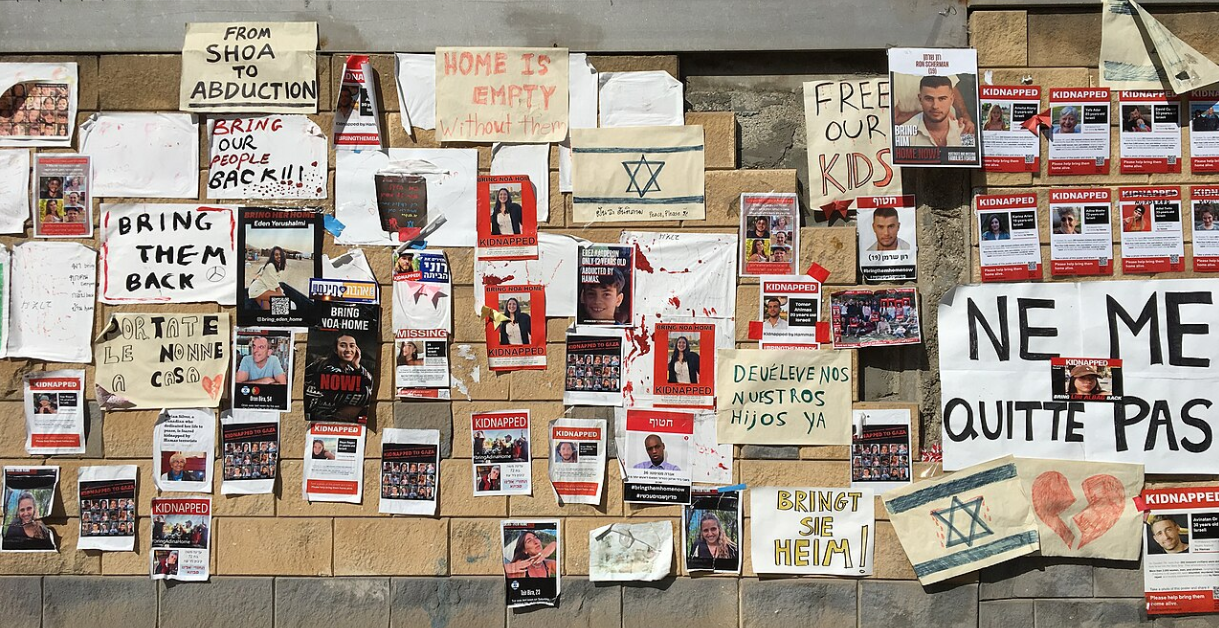-
Posts
10,051 -
Joined
-
Last visited
Content Type
Events
Forums
Downloads
Quizzes
Gallery
Blogs
Everything posted by Social Media
-
Ukraine has extended an invitation to Chinese President Xi Jinping to participate in peace talks aimed at resolving the ongoing conflict in the country, according to a statement by Volodymyr Zelenskiy's top adviser. The summit, which will be held in Switzerland, has garnered interest from various world leaders, although the specific venue and date are yet to be finalized. Zelenskiy's adviser, Igor Zhovkva, emphasized the importance of China's involvement in the peace talks, stating that the invitation is extended at the highest level, involving the President of the People's Republic of China. Zhovkva expressed the hope that China's participation would play a crucial role in bringing an end to the war. While China has maintained a close relationship with Russia, it has also previously offered to mediate in the conflict and emphasized the importance of respecting the sovereignty and territorial integrity of all countries. China's potential engagement in the peace talks could be a significant factor in finding a resolution to the conflict. President Xi Jinping, a key ally of Russian President Vladimir Putin, holds influential views among major global powers. His stance on a potential peace plan may carry weight in shaping the future trajectory of the conflict in Ukraine. 27.01.24 Source
-
In a recent accusation, Israel has claimed that the World Health Organization (WHO) is colluding with Hamas by turning a blind eye to the "terrorist use" of hospitals in the Gaza Strip. During a session at the WHO's executive board, Israeli Ambassador Meirav Eilon Shahar argued that true healthcare couldn't exist in the Palestinian territory when Hamas embeds itself in hospitals and utilizes human shields. Eilon Shahar asserted that in every hospital searched by the Israel Defense Forces (IDF) in Gaza, evidence of Hamas' military use was found. Despite presenting what Israel considers undeniable facts, the WHO consistently chooses to ignore these findings, leading Israel to accuse the organization of collusion rather than incompetence. Israel has long maintained that Hamas uses civilians as human shields, often locating its operations bases under hospitals. Captured Hamas terrorists have supported these claims, emphasizing that the group is aware that Israel is hesitant to target medical centers. Ambassador Eilon Shahar took to social media, insisting that there is clear evidence of Hamas's "terrorist use" of hospitals. However, WHO Director-General Tedros Adhanom Ghebreyesus vehemently denied Israel's collusion accusations, stating that such claims could jeopardize the safety of the agency's staff in Gaza. In a tweet, Tedros refuted Israel's accusations, emphasizing WHO's impartiality and commitment to working for the health and well-being of all people. He also expressed concern that false claims could endanger the lives of the organization's staff. During the WHO session, Tedros became emotional when describing the dire conditions in Gaza, urging a peaceful resolution to the ongoing conflict. He underscored the need for a political solution and expressed his personal experience of growing up amidst war in Ethiopia. Despite the emotional plea, Israel's accusation against WHO highlights the deep-rooted tensions and differing perspectives surrounding the conflict in the Gaza Strip. The international community continues to grapple with finding a balanced approach to address the complex issues and humanitarian concerns in the region. 27.01.24 Source
-
In a concerning development, an oil tanker, the Marlin Luanda, has caught fire in the Gulf of Aden following a missile attack claimed by the Houthi rebel group. The incident occurred approximately 60 nautical miles southeast of Aden, and the UK Maritime Trade Operations (UKMTO) has reported the vessel's distress. The Houthi rebels, known for their ongoing conflict with Saudi Arabia and the United Arab Emirates, declared responsibility for the strike, stating that they targeted the tanker with "appropriate naval missiles." The operator of the vessel, Trafigura, confirmed the attack, revealing that the missile strike ignited a fire in one of the cargo tanks on the starboard side. Firefighting equipment is currently being deployed to suppress and control the blaze. Despite the alarming nature of the incident, Trafigura emphasized that the safety of the crew remains the top priority. Military ships are en route to provide assistance, and the situation is under careful monitoring. The UKMTO has warned other vessels in the region to transit with caution and report any suspicious activity. Warships are reportedly attending the scene to support the distressed tanker, ensuring the safety of the crew and containment of the fire. Fortunately, no injuries have been reported at this time. This attack marks the latest in a series of incidents involving Houthi strikes on commercial shipping in and around the Red Sea. The rebel group, backed by Iran, has intensified its attacks since November, particularly targeting vessels passing through one of the world's busiest shipping lanes. The attacks are proclaimed in solidarity with Palestinians in Gaza, where the Houthi movement expresses support for Hamas against Israel. The international response to these attacks has been swift. The US and the UK, in collaboration with their allies, have launched air strikes on Houthi positions in response to the group's aggression. Additionally, both nations are imposing sanctions on the Iran-backed militants to disrupt their financial resources. As the situation unfolds, the global community is closely monitoring the developments in the Gulf of Aden, emphasizing the need for maritime security and the protection of vital shipping lanes. The Houthi rebel group's actions continue to pose a significant challenge, prompting nations to reassess their strategies in response to these evolving threats. 27.01.24 Source
-
The White House has conveyed deep concern over the execution of Kenneth Smith in Alabama, marking the first use of nitrogen gas as a method of capital punishment in the United States. Press Secretary Karine Jean-Pierre stated that the reports of Smith's execution were troubling to the administration, emphasizing President Biden's longstanding concerns about the implementation of the death penalty and its alignment with American values. Kenneth Smith was executed on Thursday, breathing nitrogen gas through a face mask, which led to oxygen deprivation. The method's unprecedented use prompted criticism, with opponents arguing that it violated constitutional protections against cruel and unusual punishment. Smith had been convicted of a murder-for-hire killing dating back to 1988. The Supreme Court rejected a last-minute attempt to halt Smith's execution, although Justice Sonia Sotomayor issued a dissenting opinion, characterizing Alabama's use of nitrogen gas as an experimental approach, treating Smith as a "guinea pig" for a new execution method. Attorney General Merrick Garland imposed a moratorium on the federal death penalty in 2021, a decision supported by President Biden. Jean-Pierre reiterated the president's deep concerns about the death penalty's implementation. Despite the federal moratorium, federal prosecutors recently announced their intention to seek the death penalty for the gunman responsible for the 2022 killing of 10 Black people at a Buffalo, N.Y., grocery store. 27.01.24 Source
-
The United States has announced a temporary suspension of funding to the United Nations Relief and Works Agency for Palestine Refugees in the Near East (UNRWA) following allegations that some of its staff members were linked to the October 7 Hamas terrorist attack on Israel. The decision comes after Israeli officials notified UNRWA that up to 12 of its employees were allegedly involved in the attacks that resulted in numerous casualties. UNRWA Commissioner-General Philippe Lazzarini expressed shock at the accusations and swiftly took action by terminating the contracts of the implicated staff members. He emphasized the importance of conducting a thorough investigation to determine the truth behind the allegations, stating, "Any UNRWA employee who was involved in acts of terror will be held accountable, including through criminal prosecution." To address the gravity of the situation, the United States has decided to pause additional funding to UNRWA while a review is conducted on the allegations and the measures taken by the United Nations to address them. Secretary of State Antony Blinken conveyed concerns over the allegations to U.N. Secretary-General Antonio Guterres, emphasizing the need for a speedy and comprehensive investigation. While the specific details of the alleged involvement of UNRWA staff in the Hamas attack remain undisclosed, both the State Department and UNRWA have welcomed the prospect of a full investigation. The State Department has reached out to the government of Israel to gather more information about the allegations and has briefed members of Congress on the matter. The October 7 attacks by Hamas militants led to a significant loss of life and the kidnapping of over 200 people in the Gaza Strip. UNRWA, established in 1949 to provide humanitarian aid to registered Palestine refugees, condemned the attacks and called for the immediate and unconditional release of Israeli hostages. Lazzarini pledged to ensure accountability for anyone found to have participated in the heinous attacks. As the U.S. temporarily withholds funding pending the investigation's outcome, the international community watches closely, emphasizing the importance of a transparent and impartial inquiry to address these serious allegations. 27.01.24 Source
-
In a significant legal development, a federal jury has ruled that former President Donald Trump must pay $83.3 million in damages to E. Jean Carroll. Carroll, an 80-year-old journalist, filed a defamation lawsuit against Trump in November 2019, accusing him of damaging her reputation by denying allegations that he raped her nearly three decades ago. The lawsuit stemmed from Trump's denials, made five months earlier, in which he dismissed Carroll's claims that he raped her in the mid-1990s in a Bergdorf Goodman department store dressing room in Manhattan. Trump, 77, asserted that he had never heard of Carroll and accused her of fabricating the story to boost sales of her memoir. His legal team argued that Carroll sought attention and fame by speaking out against Trump. This verdict follows a previous ruling in May, where another jury ordered Trump to pay Carroll $5 million over a similar denial in October 2022. The jury found that Trump's actions constituted defamation and sexual abuse against Carroll. Trump is currently appealing that decision. In the recent trial, Carroll sought damages exceeding $10 million, contending that Trump had severely damaged her reputation as a respected journalist known for her truthful reporting. She also sought punitive damages, aiming to prevent Trump from repeating his denials. The outcome of this case adds another layer to the legal challenges faced by Donald Trump, marking a significant ruling in favor of E. Jean Carroll and highlighting the broader implications of defamation claims against public figures. 27.01.24 Source
- 587 replies
-
- 12
-

-

-

-

-

-
As the House Ethics Committee intensifies its investigation into Rep. Matt Gaetz, sources reveal that the probe is zeroing in on the sex trafficking allegations against him. The committee's staff has reportedly been reaching out to potential witnesses related to sex crimes, while also seeking records from the Department of Justice (DOJ) regarding its prior investigation into Gaetz. The Ethics Committee has initiated contact with individuals involved in the sex trafficking probe, including the woman Gaetz allegedly had sex with when she was underage. While specific details about interviews remain unconfirmed, the investigation is said to be honing in on sex trafficking, drug-related activities, and payments. The recent developments suggest a shift in focus, as earlier reports did not confirm that the Ethics investigation was targeting the most explosive allegations against Gaetz. The committee appears to be more assertive in its pursuit of the sex trafficking claims after publishing a report on Rep. George Santos, prompting his removal in November. The House Ethics probe is currently at the staff level and has not advanced to the full committee. Depending on the ongoing investigation's outcome, the committee may decide to authorize an Investigative Subcommittee to delve further into the allegations. Gaetz, who has previously dismissed the Ethics panel's investigation, reiterated that the allegations are untrue. However, sources indicate that the committee is actively reaching out to witnesses, signaling a potential escalation in the probe. Gaetz's statement challenges the credibility of those making allegations, citing exposures, indictments, and imprisonments, with specific references to Joel Greenberg and Stephen Alford. It is important to note that the House Ethics Committee's findings, while significant politically, lack enforceability. The intensification of the investigation may increase pressure on Gaetz and his allies to address the allegations and cooperate with the committee's inquiries. 26.01.24 Source
-
The International Court of Justice (ICJ) is currently deliberating a case brought forward by South Africa, accusing Israel of committing genocide in Gaza. The focus of the case is not on designating Hamas as a terrorist organization but on addressing the humanitarian crisis resulting from the conflict. The ICJ session, which began two weeks ago, could potentially lead to emergency measures compelling Israel to cease its military operations in Gaza. South Africa has requested nine provisional measures, including a halt to military activities by Israel, while the broader accusation of genocide is under consideration. It's important to note that a ruling against Israel in this context is politically significant but lacks enforceability by the court. The case stems from Israel's military offensive in response to an attack by Hamas on October 7, which resulted in substantial civilian casualties. According to the Hamas-run health ministry in Gaza, over 25,000 Palestinians, predominantly women and children, have been killed, with tens of thousands more injured. The attack also involved taking hostages, further escalating tensions in the region. Israel vehemently rejects the genocide allegation, asserting its right to self-defense and claiming to target Hamas fighters rather than civilians. The country has urged the judges to dismiss South Africa's request, labeling the accusations as "grossly distorted" and baseless. The ICJ's ruling, expected to be delivered on Friday, will address two key questions. Firstly, whether South Africa has met the basic criteria to pursue its claim under the UN's 1948 Genocide Convention. Secondly, whether there is a plausible risk of irreparable harm to the Palestinian people in Gaza if Israel's military actions persist. While the ICJ's rulings are legally binding in theory, they lack enforceability by the court. If the ruling favors South Africa's requests, it may increase political pressure on Israel to work towards a ceasefire and prompt international allies to intensify efforts behind the scenes for a resolution and humanitarian assistance in the region. 26.01.24 Source
-
Senator Tim Scott (R-S.C.), the only Black Republican in the Senate, defended his recent endorsement of former President Donald Trump, asserting that Trump "did more for minorities than Joe Biden…will ever do." Scott's endorsement has drawn criticism, given Trump's controversial remarks on race during his presidency. During an interview with Fox News anchor Laura Ingraham, Scott highlighted Trump's support for historically black colleges and universities (HBCUs), emphasizing that Trump allocated more funding to HBCUs than any other president. In 2019, Trump signed a bipartisan bill providing over $250 million annually to HBCUs, expressing his commitment to supporting these institutions. Scott also praised Trump's efforts on the economy, unemployment, and addressing sickle cell anemia, a blood disorder disproportionately affecting the Black population. He contended that Trump's policies benefited people of all races. The senator's endorsement occurred at a Trump rally in New Hampshire, where he appeared onstage with the former president after his primary victory over former South Carolina Gov. Nikki Haley. Trump jokingly commented on Scott's support, saying, "You must really hate her," to which Scott responded with laughter, stating, "I just love you!" The endorsement and the onstage interaction between Scott and Trump drew criticism from the Rev. Al Sharpton, who described Scott's rhetoric as "humiliating." Sharpton acknowledged Scott's right to be a Republican but expressed concern about the manner in which he endorsed Trump. Scott's endorsement reflects the broader dynamics within the Republican Party, where divisions exist over allegiance to Trump. While some Republicans embrace Trump's influence, others remain critical of his controversial statements and policies, particularly on issues related to race. 26.01.24 Source
-
Tesla, once the world's most valuable automaker, is facing challenges to its sales growth targets amidst increasing competition from Chinese electric car brands. In its recent earnings report, Tesla acknowledged a slower growth rate for 2024 compared to previous years, marking a departure from its ambitious sales projections. The company's shares dropped by 7.5% in premarket trade following the announcement. Tesla's growth rate for 2023 was 38%, falling short of its earlier target of achieving a 50% annual growth rate over several years. Elon Musk, Tesla's CEO, conceded that Chinese carmakers, particularly BYD, are becoming formidable competitors globally and predicted they could "demolish" most other car companies without trade barriers. BYD recently surpassed Tesla in global electric vehicle (EV) sales during the fourth quarter of 2023. Musk, who once dismissed Chinese EV brands, now recognizes them as "the most competitive car companies in the world" and foresees their significant success beyond China. BYD, backed by Warren Buffett, has expanded into international markets, pledging to open a factory in Hungary. The growing influence of Chinese automakers, including BYD, has prompted an anti-dumping investigation by EU officials, potentially resulting in higher tariffs. Tesla's slower growth rate projection for 2024 is attributed to its focus on launching the next-generation vehicle, likely a more affordable model. The company's most recent vehicle, the Cybertruck pickup, faced production delays and challenges due to its manufacturing complexity. Musk acknowledged that the ramp-up for the Cybertruck to become profitable might take longer than other models. Despite the slowdown in growth and disappointing earnings, Musk remains optimistic about Tesla's future. The company reported adjusted earnings of 71 cents a share, slightly below analysts' forecasts, and a 40% decline from the previous year. Revenue for the quarter reached $25.2 billion, up only 3% from a year earlier, reflecting the impact of lower average sales prices resulting from price cuts. Tesla's evolving market dynamics underscore the intensifying competition in the electric vehicle sector and the formidable position of Chinese automakers in reshaping the global automotive landscape. 26.01.24 Source
-
A top official from the United Nations has raised concerns about the UK government's "stop the boats" policy, describing it as a "fake response" to migration challenges. Filippo Grandi, the UN high commissioner for refugees, expressed worries that such policies target migrants as "easy targets" and criticized politicians for manipulating immigration issues with "fake news" to gain votes. Rishi Sunak, the UK Chancellor, had made the "stop the boats" promise a key priority for the government, but Grandi argued that such approaches are not effective in addressing the complex issue of arrivals. He highlighted the risk of diverting attention from the real and challenging work needed to manage migration more effectively. During an interview with BBC Radio 4's Today program, Grandi explicitly referenced the UK's "stop the boats" policy and likened it to Donald Trump's "build a wall" approach in the United States, labeling both as "fake responses" that fail to address the root causes of migration. Grandi also voiced concerns about the UK government's Rwanda asylum scheme, which aims to process asylum claims in Rwanda. He criticized the practice of some countries with more resources devising systems to shift responsibilities for asylum seekers to other states, contrary to the principles of refugee protection. The UN official emphasized the importance of ensuring fair procedures for all asylum seekers, especially in countries that are signatories to international conventions. The UK Home Office defended its policies, stating that the country is not abdicating its responsibilities and emphasizing its commitment to preventing small boats from crossing the English Channel. The government has faced criticism, with the Supreme Court ruling the Rwanda asylum scheme unlawful in November 2023. Despite this ruling, the Home Office introduced a new bill to establish Rwanda as a safe country in UK law. As migration issues continue to be a point of contention, the UN's stance underscores the need for comprehensive and ethical approaches to address the complexities of refugee protection and asylum processes. 26.01.24 Source
-
In the bustling city of Istanbul, the AG Plaza stands as an architectural marvel, boasting terraces, pools, and commercial spaces designed to attract tech companies seeking proximity to the city's Commerce University campus. However, this seemingly unrelated structure is intricately linked to the devastation in Gaza, shedding light on the financial underpinnings of the militant group Hamas. The AG Plaza, constructed by a company controlled by individuals identified by the U.S. Treasury Department as "Hamas elements," is just one piece of a complex puzzle. A recent Newsweek investigation reveals an extensive network of companies and individuals allegedly funding Hamas operations, uncovering ties that span the Middle East and potentially extend into Western Europe. The U.S. Treasury Department's efforts to disrupt Hamas funding recently intensified, with the Biden administration offering a reward of up to $10 million for information that could dismantle the group's economic foundations. The Rewards for Justice Program targets not only major donors and financial facilitators but also businesses, investments, and criminal schemes connected to Hamas. Despite Israel's efforts to cripple Hamas through aerial and ground assaults on Gaza, the flow of funds from abroad appears undeterred. The investigation suggests that cutting off Hamas funding at its source is a challenging task, given the group's expansive web of interconnected companies, enriching senior figures within Hamas. Key findings from the investigation include a Yemeni business administrator joint-owning a Hamas-linked UAE property company, co-founding a publicly traded Turkish construction company, owning a share of a Hamas front company in Saudi Arabia, and serving on the board of another Hamas-linked Sudanese company. Additionally, a West Bank accountant emerges as central to major construction and real estate firms in Turkey, Sudan, and Saudi Arabia. The network's growth becomes evident as a Sudanese businessman, described by the U.S. Treasury Department as a "Hamas financier" with ties to Osama bin Laden, establishes a Hamas-linked company in Spain. The U.S. Treasury Department estimates the Hamas-linked construction empire's total worth at $500 million, emphasizing the magnitude and complexity of the financial network. While the investigation sheds light on these connections, it also underscores the challenges in disrupting Hamas funding. The group's ability to operate through seemingly legitimate businesses raises concerns about financial crime regulation in industries like construction and real estate, where Hamas-connected developers can obscure the origins of their funds. In the wake of ongoing conflict and humanitarian crises in Gaza, the international community faces the daunting task of dismantling the financial infrastructure that supports Hamas. As efforts intensify, the intricate web of Hamas-linked businesses continues to pose challenges, emphasizing the need for a coordinated and comprehensive approach to address the root causes of the conflict. 26.01.24 Source
-
As the D.C. Circuit Court of Appeals weighs the question of whether former President Donald J. Trump is immune from prosecution, his vocal assertions on social media and at rallies shed light on his desire for what he terms "presidential immunity." However, legal experts argue that Trump's analogies to police and priests are flawed, emphasizing that such immunity doesn't shield individuals from criminal prosecutions. Flawed Analogies and Legal Realities: Trump's analogies comparing himself to police officers and priests, asserting the need for immunity to carry out their duties, face legal scrutiny. Legal experts emphasize that the doctrine of qualified immunity, designed to protect government officials from civil lawsuits, does not extend to criminal prosecutions. Notable cases in history, such as President Richard M. Nixon's resignation and subsequent pardon, illustrate that presidents are not immune from criminal charges. Presidents, Police, and Priests: No Blanket Immunity: Contrary to Trump's claims, there is no constitutional provision granting blanket immunity to presidents, police officers, or priests from criminal prosecution. The legal system does allow officials to mount defenses based on the argument that they were performing their duties, but it doesn't absolve them of accountability for criminal actions. Trump's Desire for Unaccountability: Beyond legal nuances, Trump's push for immunity suggests a broader desire to shield himself from scrutiny and accountability. Critics argue that he envisions a scenario where all his actions, regardless of legality, remain immune from examination—an assertion reminiscent of an emperor seeking to evade accountability. Pro-Police Bias and Its Consequences: By leaning into the "rogue cop" analogy, Trump inadvertently highlights the pro-police bias prevalent in society. This bias, evident in data on police shootings and subsequent legal actions, showcases a systemic issue where public servants benefit from an unspoken social contract that grants leniency even in the face of wrongdoing. Challenges to Accountability: Implicit biases, reluctance by prosecutors to pursue cases against public officials, and societal perceptions contribute to challenges in holding powerful individuals accountable. Trump's quest for immunity seeks to formalize and institutionalize this protection, potentially paving the way for unchecked actions by those in positions of power. As the legal battle over Trump's potential immunity unfolds, it raises critical questions about accountability, the rule of law, and the dangers of formalizing protections that could shield individuals from criminal prosecution. The American future, as envisioned by Trump, appears to prioritize unaccountability over the principles of justice and transparency. 25.01.24 Source
-
In a surprising turn of events, former President Donald Trump's victory in the New Hampshire primary has set the stage for a high-stakes rematch against President Joe Biden in the upcoming general election. The Biden campaign sees this as an opportunity to confront Trump head-on, viewing him as a more formidable opponent compared to other Republican contenders. Despite facing challenges such as Biden's low approval ratings and internal party divisions, his team remains optimistic about their chances in what is expected to be the longest and most challenging general election campaign in modern American political history. The race has essentially become an incumbent versus another, with both Biden and Trump emerging as their party's presumptive nominees unusually early in the electoral calendar. While Trump still needs to clear a legal hurdle related to the Supreme Court hearing on Feb. 8, Biden's team sees this matchup as a chance to neutralize concerns about the president's age and galvanize support from swing voters and reluctant Democrats. Notably, Biden's advisers and allies believe that Trump's recent victories in the first two nominating states have revealed vulnerabilities with moderate Republicans, suburbanites, and independents. The Iowa caucuses, in particular, highlighted that almost half of GOP voters did not support Trump. Strategists argue that these indicators point to a potentially weaker candidacy than Trump's 2020 run. Biden's campaign is gearing up to address key issues such as democracy and abortion rights, leveraging them as cornerstones of his reelection bid. Recent statements from the president underscore his commitment to safeguarding these principles and differentiating himself from Trump. The Biden team is counting on these issues resonating with voters and countering Trump's growing influence within the GOP. While Trump's victory in New Hampshire has signaled the official start of the general election, Biden's camp acknowledges the need to convey that this is not just a replay of the 2020 match. They argue that Trump has become more extreme since his last run, and highlighting contrasts on issues like abortion and democracy will be crucial. As the longest and most grueling general election campaign unfolds, both candidates face challenges and opportunities. Biden's team is banking on their candidate's affirmative message, the improving economy, and Trump's potential legal troubles to secure victory. However, with the race expected to be closely contested, Democrats are aware of the need to address Biden's vulnerabilities, particularly among certain demographics within their base. As the nation braces for an intense electoral battle, the Biden campaign remains steadfast in its belief that a faceoff with Trump is the ultimate test of the president's resilience and ability to secure a second term. 25.01.24 Source
- 175 replies
-
- 13
-

-

-

-

-
A military aircraft carrying Ukrainian prisoners of war tragically crashed in the southern Belgorod region of Russia, resulting in the loss of all 74 passengers. The incident occurred during a planned prisoner swap, raising questions about the circumstances leading to the crash and sparking blame between Russian and Ukrainian officials. The Ilyushin-76 military transport plane, tasked with transporting 65 Ukrainian POWs to the Belgorod region for a scheduled exchange, crashed in a field in the Karocha district. Russian authorities confirmed the unfortunate demise of all passengers on board. A verified video captured the plane's descent and subsequent explosion, emphasizing the severity of the incident. Blame Game Unfolds: Russian politicians, including State Duma Committee Chief Leonid Slutsky, quickly pointed fingers at Ukrainian forces, suggesting that it was a case of friendly fire. Slutsky accused the Ukrainian military of having a history of such incidents, further implicating Washington and Brussels without providing concrete evidence. State Duma's Defense Committee head, Andrey Kartapolov, speculated on the involvement of U.S-supplied Patriot air defense missiles or German-made IRIS-T, though Kremlin Spokesman Dmitry Peskov refrained from endorsing these claims. Ukrainian Response: Kyiv vehemently rejected the accusations, labeling them as part of Russia's misinformation campaigns. The Ukraine Armed Forces asserted that the crash was not their doing, countering with the claim that the aircraft was carrying missiles for Russia's S-300 anti-aircraft weapons system. The General Staff of Ukraine implicated Russia in the recent missile attacks on Kharkiv region and adjacent Ukrainian territory. International Response: The tragic incident comes in the wake of a successful POW exchange between Russia and Ukraine brokered by the United Arab Emirates three weeks earlier. The international community awaits further investigation into the crash and emphasizes the need for transparent and unbiased findings. As both Russia and Ukraine grapple with the aftermath of the military plane crash, the blame game adds complexity to an already tense situation. The international community calls for a thorough investigation to determine the actual cause of the tragedy and urges restraint in assigning culpability. The incident serves as a grim reminder of the human toll in conflict zones, emphasizing the imperative for diplomatic efforts to bring about lasting peace. 25.01.24 Source
-
The intricate relationship between UNRWA aid and Hamas in Gaza has come under scrutiny, shedding light on the challenges and consequences of international humanitarian assistance in conflict zones. The recent discovery of a Hamas tunnel adorned with a UNRWA logo has sparked concerns about the potential misuse of aid for nefarious purposes. Delving into the dynamics of this complex situation, it becomes apparent that the entwined relationship between UNRWA and Hamas has far-reaching implications. Aid as a Double-Edged Sword: Gaza heavily relies on international aid, making it a critical lifeline for the region. Various organizations, including UNRWA, play a pivotal role in providing essential support. However, the misuse of aid for terror-related activities by Hamas has raised serious questions about the effectiveness of aid delivery mechanisms. The discovery of Hamas utilizing aid-funded infrastructure for terror purposes underscores the need for a closer examination of how assistance reaches its intended recipients. Hamas' Influence on UNRWA: Hamas took control of Gaza in 2007, creating a challenging environment for humanitarian organizations operating in the region. UNRWA, being a significant contributor to Gaza's functioning, faces vulnerability due to its operational dependence on local authorities, inevitably aligning with Hamas. Reports suggest that a substantial number of UNRWA employees in Gaza may have affiliations with or support for Hamas, raising concerns about the agency's impartiality. Theft and Diversion of Aid: The endemic issue of aid theft and diversion to Hamas is not a recent development. Over the years, instances of Hamas seizing aid shipments have been reported, with limited consequences for the group. The diversion of resources intended for vulnerable populations to support terrorism creates a moral and ethical dilemma for aid organizations, especially UNRWA. The challenge lies in distinguishing between aiding civilians in need and inadvertently supporting a designated terrorist organization. Education and Indoctrination: UNRWA's extensive responsibilities in Gaza include education, constituting a significant portion of its budget. However, concerns have been raised about the curriculum used in UNRWA-operated schools, which allegedly perpetuates hatred and glorifies violence. Reports indicate that teachers and staff associated with UNRWA have publicly celebrated terrorist attacks, highlighting potential indoctrination within the educational system. The Role of International Agencies: The complicity of international agencies in addressing Hamas-related issues has become a focal point of discussion. Despite evidence of Hamas atrocities, some UN agencies, such as UN Women, UNICEF, and the World Health Organization, have been criticized for their delayed or inadequate condemnation of Hamas. This behavior not only raises questions about the agencies' commitment to their stated missions but also potentially incentivizes further acts of terrorism. Conclusion: The intricate interplay between UNRWA aid and Hamas in Gaza presents a multifaceted challenge for the international community. Balancing the dire humanitarian needs of the population with the risk of aiding a designated terrorist organization requires a nuanced approach. Addressing the issues of aid diversion, potential Hamas influence within UNRWA, and the content of educational materials becomes paramount to ensure that international assistance serves its intended purpose without inadvertently fueling conflict. As the world grapples with the complexities of providing aid in conflict zones, a careful reevaluation of strategies and increased transparency is essential to mitigate the unintended consequences of humanitarian efforts. 25.01.24 Source
-
A recent incident involving a deepfake robocall mimicking President Joe Biden's voice has raised concerns about the potential for election disruption using artificial intelligence (AI). The call urged voters in New Hampshire not to participate in the primary and save their votes for the general election in November. The incident underscores the growing danger posed by deepfake technology in spreading misinformation and interfering with the democratic process. Key Points: Deepfake Robocall Details: The deepfake robocall featured President Biden's voice, delivering a message discouraging New Hampshire voters from participating in the primary. The call, which originated from the phone number of a former New Hampshire Democratic Party chair, aimed to disrupt a potential write-in campaign for Biden in the primary. Disruption of Write-In Campaign: The deepfake message suggested that voting in the primary would benefit Republicans and enable the re-election of Donald Trump. The intent was to dissuade voters from participating in the primary, potentially affecting the outcome of the write-in campaign for President Biden. Investigation and Legal Response: The New Hampshire Attorney General's office announced an investigation into the deepfake robocall, considering it an "unlawful attempt to disrupt the New Hampshire Presidential Primary Election." The AG's office emphasized that voters should disregard the content of the message, labeling it as an attack on democracy. Concerns Over AI-Generated Misinformation: The incident highlights the broader concern of AI-generated misinformation impacting elections and political discourse. Deepfake technology allows for the creation of convincing audio and video content, raising the potential for misleading voters and spreading false narratives. Regulatory Challenges and Slow Response: Policymakers and regulators face challenges in addressing the misuse of AI in the political sphere. The incident follows OpenAI's ban on a user who created a bot mimicking a Democratic presidential candidate, demonstrating the broader impact of AI in political communication. Potential Supreme Court Challenge: The denial of Trump's request for a rehearing on a gag order-related appeal paves the way for a potential Supreme Court challenge, indicating the legal complexities surrounding AI-related issues. Need for Candidate Vigilance and Education: Experts emphasize the importance of candidates being proactive in addressing AI-related threats and educating voters about potential misinformation. Candidates are urged to embrace AI responsibly for campaign messaging and engage with voters to counteract misinformation. Balancing AI Benefits and Risks: While AI presents opportunities for automating campaign tasks and improving communication, its misuse poses significant risks. The challenge is to strike a balance between leveraging AI for positive purposes and safeguarding against malicious uses that undermine the democratic process. Conclusion: The deepfake Biden robocall incident in New Hampshire underscores the urgent need for policymakers, candidates, and the public to grapple with the evolving landscape of AI-driven misinformation in elections. As the 2024 elections approach, vigilance, education, and responsible use of AI are crucial in mitigating the risks and ensuring the integrity of the democratic process. 24.01.24 Source
-
A federal appeals court has rejected Donald Trump's request for a rehearing in the criminal case related to his efforts to overturn the 2020 election results. The decision, which denies Trump an en banc rehearing, marks a setback for the former president and sets the stage for a potential final challenge to the US Supreme Court. The appeals court's ruling upholds a protective order issued by US District Judge Tanya Chutkan, restricting Trump from making inflammatory statements that could impact trial witnesses or the fairness of the trial. Background: For months, Trump has sought to overturn the limited protective order imposed by Judge Chutkan, who is overseeing the criminal case in Washington. The protective order prohibits Trump from making statements that could intimidate witnesses or taint the jury pool. Special counsel prosecutors raised concerns about Trump's public statements attacking them, court staff, and potential witnesses, arguing that such statements could impede the fair administration of justice. The protective order was issued in response to Trump's rally speeches and posts on his Truth Social platform. Legal Proceedings: The rejection of Trump's en banc rehearing request follows an earlier denial by a three-judge panel at the DC Circuit. The panel upheld the restrictions on Trump's statements but allowed him to criticize the Biden administration, the US Justice Department, and allege political motivation in the case. The panel rejected Trump's argument that a gag order could only be imposed after his statements had already chilled a witness, emphasizing that Trump, despite being a former president and current presidential candidate, must face trial like any other criminal defendant. Trump's Argument and Rejection: Trump appealed the panel's decision and sought a rehearing from the same three-judge panel and the full court. The appeals court, in a 68-page opinion, reiterated that Trump, as an indicted criminal defendant, must adhere to courtroom procedures like any other defendant. The rejection of Trump's rehearing requests underscores the courts' reluctance to interfere with trial judges' discretion in issuing protective orders, which are standard in criminal cases. Potential Supreme Court Challenge: With the denial of Trump's rehearing requests, the path is now open for a potential final challenge to the US Supreme Court. Trump's legal team may explore avenues to contest the protective order further, setting the stage for a legal showdown at the highest court. Conclusion: The legal battle over the protective order in the criminal case against Donald Trump continues, with the recent denial of rehearing requests. As the case potentially heads to the US Supreme Court, the outcome will have implications for the scope of protective orders in criminal cases involving high-profile individuals and the broader issue of free speech in the context of ongoing legal proceedings. 24.01.24 Source
-
The aftermath of the October 7 onslaught near Gaza continues to reveal a perplexing phenomenon – widespread denial among Palestinians regarding the atrocities committed by Hamas during the attack. As the international community grapples with understanding the complexities of the Israel-Hamas conflict, the narrative shaped by media and the denial prevalent on the Palestinian street become central aspects of the conversation. Denial Despite Overwhelming Evidence: Abdullah Abu Shawesh, a Palestinian diplomat, matter-of-factly claimed to Al Jazeera that no Israeli civilians were killed during the October 7 attack. Shockingly, he dismissed well-documented evidence of Hamas's indiscriminate massacres and sexual violence, echoing mainstream beliefs among Palestinians. A survey conducted by the Palestinian Center for Policy and Survey Research (PCPSR) revealed that over 90% of Palestinians polled believe that Hamas did not commit the atrocities seen in videos from October 7. This alarming denial is attributed to the lack of coverage in Palestinian and Arab media, particularly by influential outlets like Al Jazeera. Media Influence and Denial: The PCPSR survey highlighted that 85% of respondents claimed they had not seen video footage of the acts, despite the widespread dissemination of videos capturing the heinous attacks. Khalil Shikaki, a professor of political science, argued that Palestinians' denial is closely tied to the limited coverage in their media outlets, where Al Jazeera has become a primary source of information. Even among those who viewed the videos, denial persisted, with skepticism about the authenticity of the footage and suspicions of propaganda from the Israeli side. Contradictions and Pathological Response: The contradiction between denying the October 7 atrocities and simultaneously praising Hamas raises questions about the collective psyche. Support for Hamas in the West Bank reportedly tripled after the events of October 7, showcasing a seemingly bipolar reaction among Palestinians. Tel Aviv University's Michael Milshtein noted the glaring contradiction between denial and extensive praise for Hamas, describing it as a pathological response reminiscent of how some Palestinians approach the Holocaust. Impact on International Perceptions: As the media's focus shifts to Israel's military campaign in Gaza, sympathy for Palestinians has surged globally. The destruction in Gaza has fueled international outrage, especially in the West Bank, where Arab TV outlets have largely avoided the Israeli narrative. This coverage has contributed to growing support for Hamas, emphasizing the potent role of media in shaping public opinion. 24.01.24 Source
-
In a significant legal development, the U.S. Supreme Court has granted the Biden administration's request to lift an injunction related to the contentious Texas razor wire barrier. This decision allows the Department of Homeland Security to proceed with the removal of the wire fencing erected by Texas officials to deter migrant crossings. The legal battle between the federal government and Texas, led by Governor Greg Abbott, has been ongoing, with each side asserting its position on border security. Background: Texas officials, responding to a surge in migrant arrivals at the U.S.-Mexico border, constructed miles of barriers using razor wire, barbed wire, and buoys along the Rio Grande near Eagle Pass. The move prompted the Department of Justice to file a lawsuit against Texas, arguing that the barriers interfered with federal immigration enforcement. In December, Texas counter-sued the Biden administration, seeking to prevent the removal of the barriers and emphasizing the state's authority to secure its border. Supreme Court Decision: The Supreme Court's 5-4 decision in favor of the Biden administration marks a crucial moment in the legal dispute. The majority opinion, including justices in the liberal bloc, cleared the way for Border Patrol agents to dismantle the razor wire fencing. Notably, Justices Clarence Thomas, Samuel Alito Jr., Neil Gorsuch, and Brett Kavanaugh dissented, underscoring the divided nature of the court on this issue. Texas Response: Texas Attorney General Ken Paxton condemned the Biden administration's position, characterizing it as an "illegal effort to aid the foreign invasion of America." Paxton expressed concern that removing the border barriers would jeopardize law enforcement efforts and endanger American citizens. Governor Abbott echoed these sentiments, emphasizing that the fight is not over, and Texas will continue defending its constitutional authority to secure the border. White House Perspective: A White House spokesperson welcomed the Supreme Court's decision to vacate the injunction, highlighting the importance of frontline personnel being able to perform vital federal functions. The spokesperson criticized the razor wire barriers as a political stunt, asserting that they hinder the ability of law enforcement to address urgent humanitarian situations and enforce immigration laws. The Biden administration called for comprehensive resources and policy changes to address what it views as a broken immigration system. Conclusion: The Supreme Court's intervention in the Texas razor wire saga reflects the ongoing legal battles over immigration policies and border security. As the Biden administration seeks to assert federal authority, Texas remains steadfast in defending its actions to protect the state's sovereignty. The implications of this legal tug-of-war extend beyond the immediate removal of barriers, touching on broader questions surrounding immigration enforcement and the division of powers between federal and state authorities. 24.01.24 Source
-
The UK government has come under fire for its stance on the BBC, with Culture Secretary Lucy Frazer stating that the broadcaster has, "on occasion," shown bias. However, she was unable to provide specific examples during a recent interview with Sky News. Critics argue that the government is using the BBC as a "punching bag" in its broader cultural agenda. Government Accusations and Lack of Examples: Lucy Frazer's comments during the interview have sparked accusations that the government is deliberately undermining the BBC. While she acknowledged that the BBC has been biased "on occasions," Frazer failed to cite specific instances. Labour's shadow culture secretary, Thangam Debbonaire, criticized the government's approach, calling it part of a pattern of attacking a vital institution. Perceptions vs. Reality: Frazer emphasized the importance of public perception, stating that the BBC, as a publicly funded entity, should be attentive to how audiences perceive its impartiality. When questioned about the distinction between perception and reality, she maintained that perceptions matter, especially given the BBC's reliance on public funding. Reforms and Ofcom Oversight: The government has proposed reforms as part of the BBC mid-term review, intending to enhance oversight of the broadcaster's online services. Ofcom, the communications watchdog, would gain additional powers over the BBC's digital content, including its news website and YouTube channel. The proposed changes aim to ensure greater accountability and adherence to broadcast standards. Labour's Response and BBC's Commitment: Thangam Debbonaire criticized the government's approach, accusing it of undermining the BBC instead of supporting it. The proposed reforms have raised concerns about potential interference in the broadcaster's independence. In response, a BBC spokesperson reiterated the organization's commitment to impartiality and highlighted the measures already taken to strengthen its complaints procedures. Impartiality Concerns and High-Profile Incidents: The impartiality of the BBC has faced increased scrutiny, particularly in the aftermath of high-profile incidents. Instances involving public figures like Gary Lineker and former chairman Richard Sharp have fueled debates about the broadcaster's adherence to neutrality. The government's push for reforms raises questions about the future dynamics between the BBC and regulatory oversight. Conclusion: As proposed reforms seek to extend Ofcom's oversight, concerns about potential interference in the BBC's independence persist. The ongoing debate underscores the challenges faced by public broadcasters in maintaining impartiality and public trust. 24.01.24 Source
-
The White House has voiced growing concern about Ukraine's insufficient weaponry, emphasizing the critical nature of the coming months as Russia continues to bolster its military capabilities. The lack of clarity regarding the next military aid shipment has left Ukrainian commanders grappling with decisions on weapon allocation, while Russia actively seeks new sources for ballistic missiles and drones. The Biden administration's National Security spokesperson, John Kirby, warned against the misconception that fighting would subside with winter weather, citing ongoing Russian attacks involving drones and missiles. Challenges for Ukraine: Ukrainian commanders are facing a challenging dilemma as they navigate uncertainties surrounding future military aid shipments. The absence of a clear commitment from the United States has hindered their ability to plan and allocate resources effectively. This predicament, coupled with Russia's continuous military buildup, heightens the urgency for Ukraine to bolster its defenses. Despite facing persistent threats, Ukraine remains constrained by the lack of additional aid packages, with the most recent $250 million assistance announced on December 27, 2023, marking the latest available funding. Russian Military Buildup: Russia's aggressive actions have raised alarms, with the White House highlighting the urgency of Ukraine's situation. Kirby pointed out that Russia, in contrast to Ukraine, is not grappling with uncertainty, actively seeking support from North Korea and Iran for ballistic missiles and drones. Furthermore, Russia has demonstrated its self-sufficiency by producing its own weapons. The escalating military buildup by Russia underscores the need for swift and decisive action to counter potential threats to Ukraine's sovereignty. Congressional Inaction: The Biden administration's ability to provide further military aid to Ukraine is hindered by Congress's failure to approve supplementary funding at the end of 2023. Despite earlier assessments by national security aides that Russia could achieve a swift victory in the war within weeks or months without congressional action, the lack of progress has limited the administration's options. The White House, unable to announce additional aid packages, faces challenges in responding effectively to Ukraine's immediate needs. Desire for International Support: John Kirby articulated the White House's desire to see Ukraine's borders internationally established and recognized by all, including Russian President Vladimir Putin. Expressing commitment to supporting Ukraine in achieving its goals, Kirby underscored the importance of international recognition for Ukraine's territorial integrity. As the situation in the region remains fluid, diplomatic efforts and support for Ukraine become increasingly vital. Conclusion: The evolving situation in Ukraine demands urgent attention and international cooperation. The White House's concerns about Ukraine's lack of weapons and Russia's military buildup underscore the need for a swift and comprehensive response. As diplomatic efforts continue, the Biden administration faces the challenge of navigating congressional dynamics to secure additional funding for military aid. The coming months will be critical, requiring a coordinated effort to ensure Ukraine's security and deter further aggression in the region. 24.01.24 Source
-
Media outlets are buzzing with headlines proclaiming Donald Trump's dominating performance in the Iowa caucuses and his strong position in the polls ahead of the New Hampshire primary. While the mainstream media marvels at what they term a "stunning show of strength," it's essential to scrutinize the narrative and delve into the nuances that paint a more nuanced picture of Trump's political standing. Iowa Caucuses: Weakness in Numbers: Contrary to the media's portrayal of Trump's victory in Iowa as a landslide, a closer look reveals a more nuanced reality. Trump garnered just 56,260 votes out of 2,083,979 registered voters in Iowa, representing less than 3% of the electorate. This raises questions about the extent of his actual dominance, especially when considering that 50% of Republican caucus-goers identified as non-Maga, with three-quarters of them opposing Trump. Incumbent Advantage: Trump's status as a former president and the incumbent Republican leader provides him with a significant advantage in the primaries. This advantage stems from his control over the party apparatus and the historical tendency of parties to re-nominate former presidents seeking another term. However, the media's awe at Trump's dominance overlooks the fact that he faced competition within the party, with other candidates raising substantial funds for their primary campaigns. Post-Midterm Challenges: Trump's decision to run for the presidency again came shortly after Republicans experienced setbacks in the midterms, marking the third consecutive election where Trump's influence proved detrimental to his party's candidates. Despite losses in critical races, the media's coverage tends to downplay these challenges and instead focuses on Trump's primary victories. The Danger of Misleading Narratives: While the media's coverage creates an impression of Trump's unstoppable momentum, it's crucial to distinguish his performance in Republican primaries from potential success in the general election. The danger lies in the public adopting a false narrative that Trump's dominance in party primaries guarantees victory in the broader electoral landscape. Future Prospects and Public Perception: As the media highlights Trump's achievements in primaries, the real test awaits in the general election. When Americans shift their focus to choosing between Trump and Biden, factors such as criminal charges, impeachment history, attempted coup allegations, financial controversies, and accusations of rape may influence public perception. The media's current portrayal of Trump's dominance might not accurately predict his success in the broader electoral context. Conclusion: A critical examination of Trump's primary dominance reveals a more nuanced reality beyond the headlines. While he may command attention within the Republican party, the road to the general election poses challenges that extend beyond primary victories. As the political landscape evolves, public scrutiny of Trump's record and character will play a decisive role in shaping the narrative leading up to the presidential race. 24.01.24 Source
-
In a surprising development, Israel has presented a proposal to Hamas through Qatari and Egyptian intermediaries, suggesting a potential two-month pause in the ongoing conflict. While not signaling the end of the war, this proposition is noteworthy for being the longest ceasefire duration offered by Israel to Hamas since the conflict's inception. Israeli officials disclosed that the proposal is part of a multi-phase agreement, which, if accepted, would also involve the release of all remaining hostages held in Gaza. Over 130 hostages are still in captivity, with Israeli authorities stating that several dozen hostages may have perished on October 7 or in the subsequent weeks. The proposal, approved by the Israeli war cabinet a week ago, signifies a departure from past rejected deals, presenting a more forward-leaning approach. The offer is currently awaiting a response from Hamas, with Israeli officials expressing cautious optimism about potential progress in the coming days. Outlined in the proposal is a phased release plan, commencing with the release of women, men over the age of 60, and hostages in critical medical conditions. Subsequent phases would include the release of female soldiers, men under 60 who are not soldiers, Israeli male soldiers, and the return of hostages' bodies. The overall ceasefire period, encompassing the completion of all hostage releases, could extend up to two months. A distinctive feature of the proposal involves pre-agreement between Israel and Hamas on the number of Palestinian prisoners to be released for each Israeli hostage in different categories. Subsequent negotiations would then determine the specific names of these prisoners. Additionally, the proposal includes provisions for Israel to redeploy its Defense Forces, allowing the gradual return of Palestinian civilians to certain areas within Gaza City and the northern Gaza strip. It is crucial to note that Israel has clarified its stance, making it clear that agreeing to this proposal does not signify an end to the war, and it does not involve the release of all 6,000 Palestinian prisoners from Israeli prisons. The United States, represented by President Biden's adviser Brett McGurk, has also become involved in the negotiations, with a focus on securing the release of hostages held by Hamas. While the proposal does not guarantee a comprehensive ceasefire, it is considered a potential pathway to de-escalation, with President Biden expressing support for a pause in the fighting to enable the release of hostages and facilitate more humanitarian aid to Gaza. However, the complexity of the situation lies in the delicate balance between achieving progress in negotiations and addressing the broader geopolitical challenges posed by the Israel-Hamas conflict. The coming days will likely determine whether this unprecedented proposal can pave the way for a substantial breakthrough in the ongoing hostilities. 23.01.24 Source
-
The United Kingdom has submitted satellite photographs to a panel of UN experts, aiming to initiate an official investigation into potential arms deals violating international sanctions between North Korea and Russia. The images, taken between September and December, reportedly show three Russian ships—Maia, Angara, and Maria—loading containers at North Korea's Najin port before heading to Russian ports in the far east. Although the UK's defense intelligence report couldn't identify the cargo, it follows recent allegations that North Korea supplied ballistic missiles and artillery shells to Russia for its conflict in Ukraine. This evidence, combined with information from the United States and other countries, has been provided to the UN panel of experts on North Korean proliferation. The panel is expected to publish its first final report next month, addressing the surge in suspected North Korean shipments of ammunition to Russia. The US had announced last week that ballistic missiles from North Korea were used by Russia in Ukraine, which would violate multiple UN Security Council resolutions. The UK report points out that Russia's use of North Korean weapons in Ukraine is a breach of international sanctions, jeopardizing efforts to prevent the spread of nuclear weapons. The UN sanctions committee is urged to conduct a comprehensive investigation into Russia and North Korea's apparent violation of international sanctions. The three ships mentioned in the report, Maia, Angara, and Maria, have already faced US sanctions in 2022 due to their connections with the Russian Ministry of Defence's shipping company, Oboronlogistika OOO. This company has been linked to Russia's illegal seizure and occupation of Crimea since 2014. The evidence also reveals the potential scale of shipments from North Korea to Russia, indicating a concerning military cooperation that could impact the security landscape in the region. As global leaders express concern over the unprecedented military cooperation between Russia and North Korea, the UK's submission to the UN adds another layer to the complex geopolitical dynamics currently unfolding. The panel's upcoming report will shed light on the extent of these activities and their implications on international security. 23.01.24 Source





